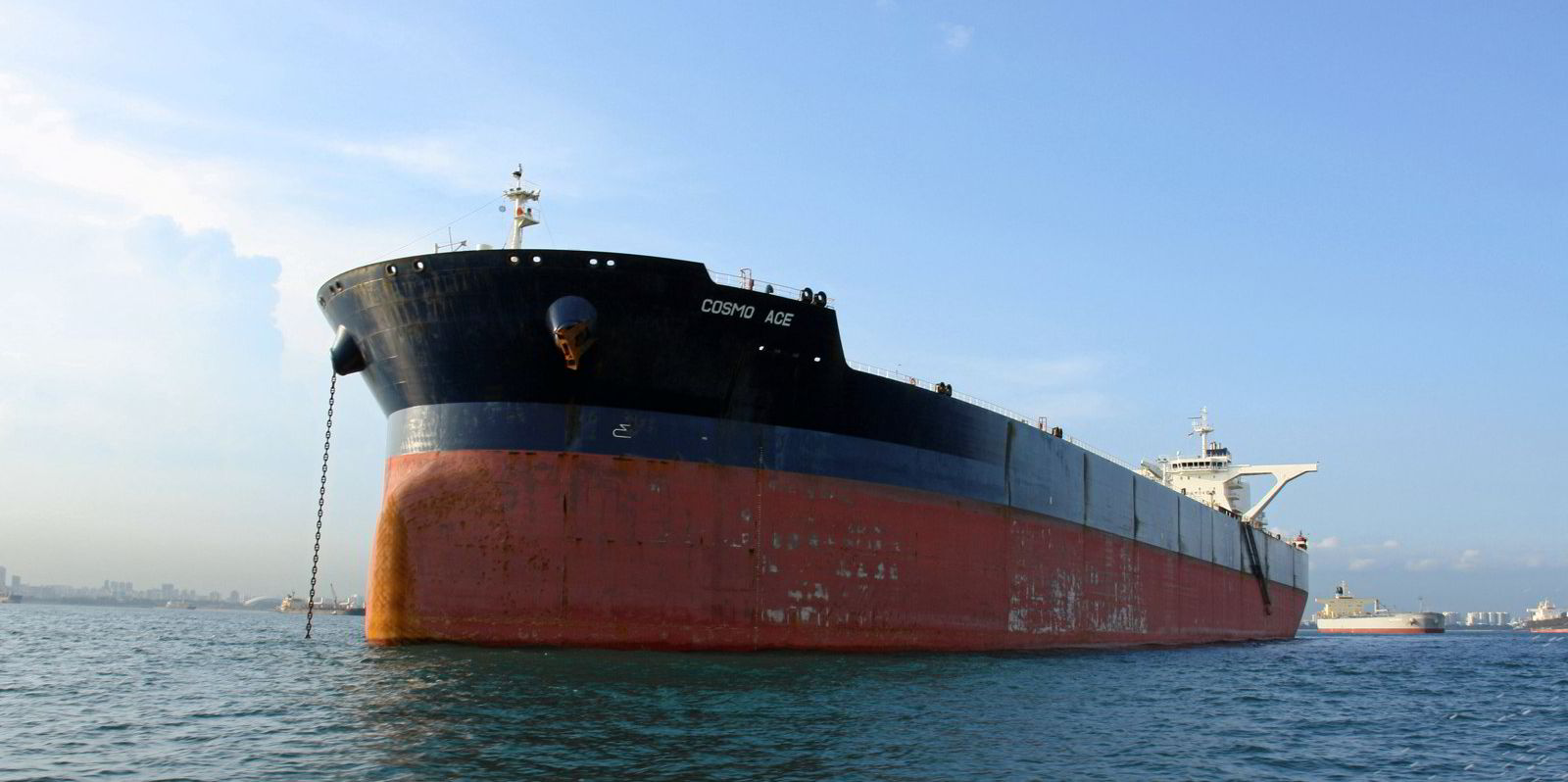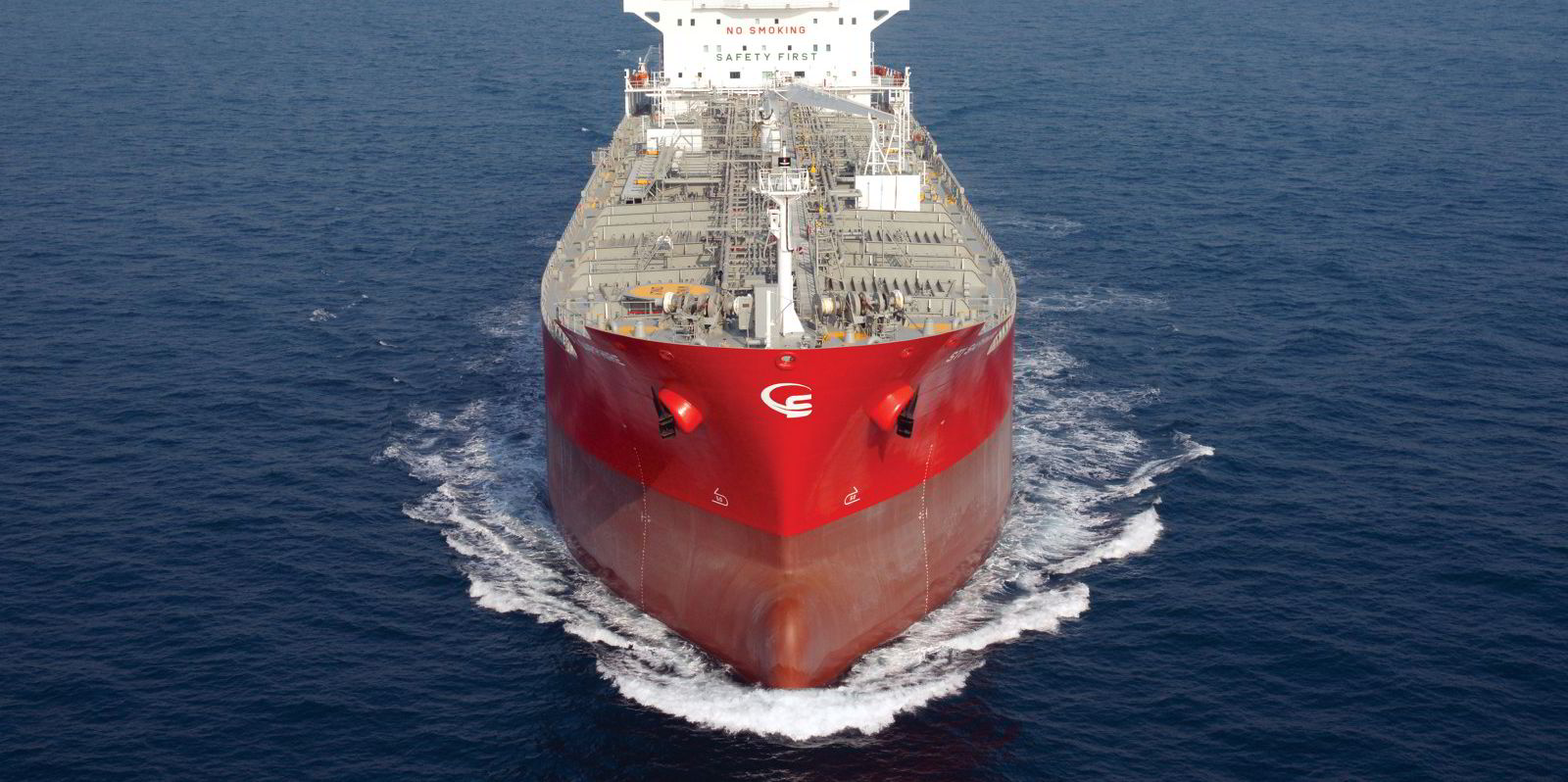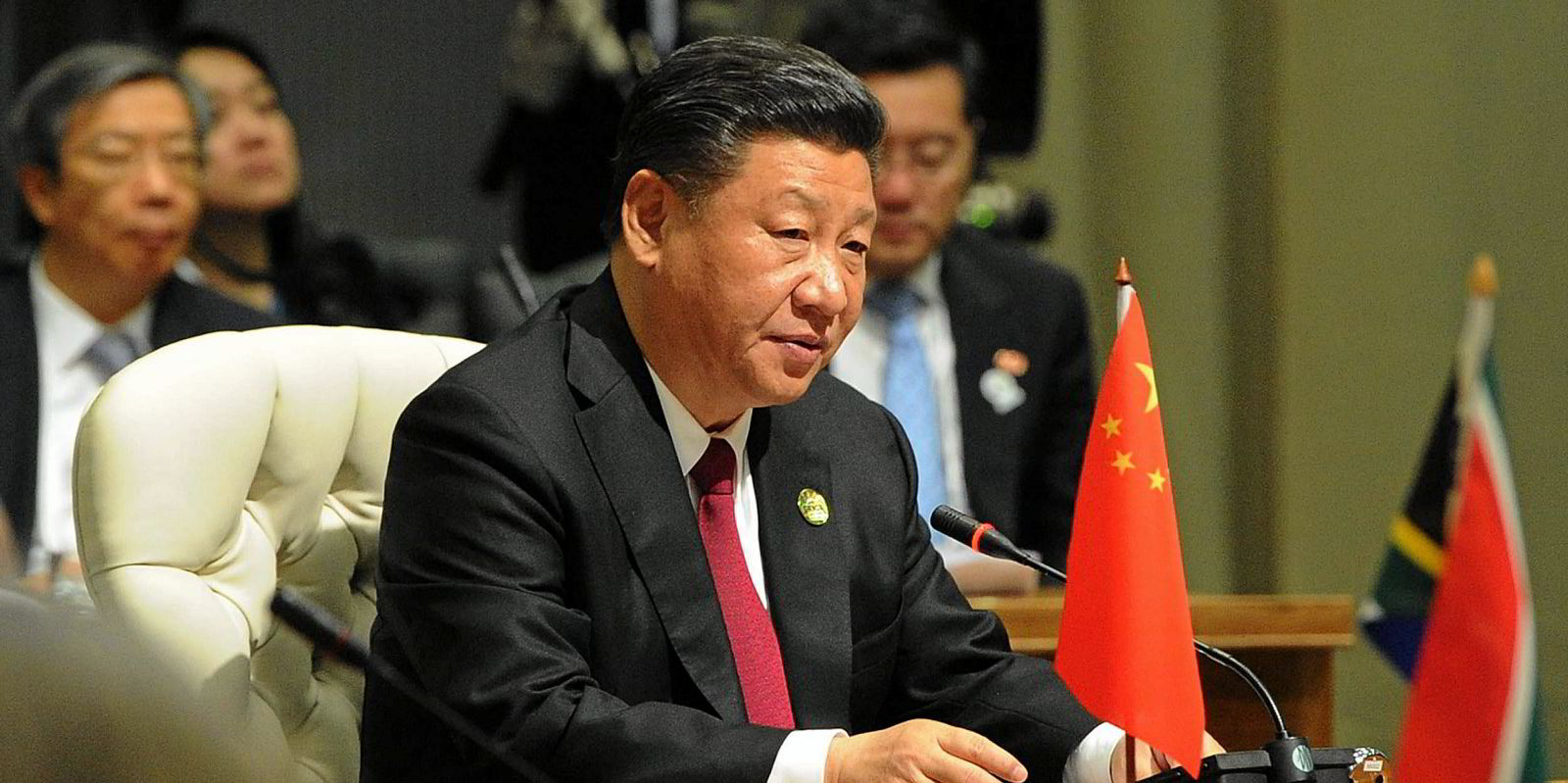Spot fixture activity in the Middle East has pushed VLCC rates to highs not seen in more than two years.
The Baltic Exchange’s VLCC time charter equivalent assessment hit nearly $42,500 per day on Tuesday, a jump of $1,600 from Friday. That continued the general upward trend starting in late May when the figure hit an all-time low.
Tuesday’s reading was the assessment’s highest since June 2020.
“The momentum has firmly been in the [Middle East] today — with a tight position list for October, charterers have sought to cover their 1st decade stems in earnest and hence the market fixing levels have increased significantly on last Friday’s numbers,” Howe Robinson said in its daily note.
On a time-charter equivalent basis, the broker said rates jumped about $1,900 to just over $70,000 per day on the route from Saudi Arabia to China.
Baltic Exchange data also showed there were increases on routes from the Middle East.
The marketplace said ships headed to the US Gulf Coast rose $1,400 to about $19,100 per day, while voyages to China jumped about $1,700 to more than $65,900 per day.
According to Tankers International data, there were five fixtures for ships in the Middle East on Tuesday and one on Monday. The cheapest fixture came in at $64,036 per day for the International Seaways-owned, Tankers UK-operated 297,000-dwt Seaways McKinley (built 2011).
The ship is set to carry crude to South Korea for SK Energy and will load in early October.
All the rest were above $70,000 per day.
The richest was fetched by SK Energy’s 313,798-dwt M Star (built 2008) for a voyage to Japan at $86,109 per day for loading in early October.
On Friday, TradeWinds reported a flurry of VLCC fixing activity out of the Middle East Gulf, with Chinese charterers grabbing cargos amid a reported turn away from Russia.
Lorentzen & Co suggested China was making moves to buy up crude oil in an attempt to provide Europe and the US with much-needed petroleum products.
BRS Group said on Monday that China was helping product tankers by pushing oil products into the global market as the country continues periodic Covid-19 lockdowns. It said the country’s zero Covid-19 policy could shift at next month’s National Congress of the Chinese Communist Party.
Such a decision would likely harm product tankers while boosting crude tankers.






